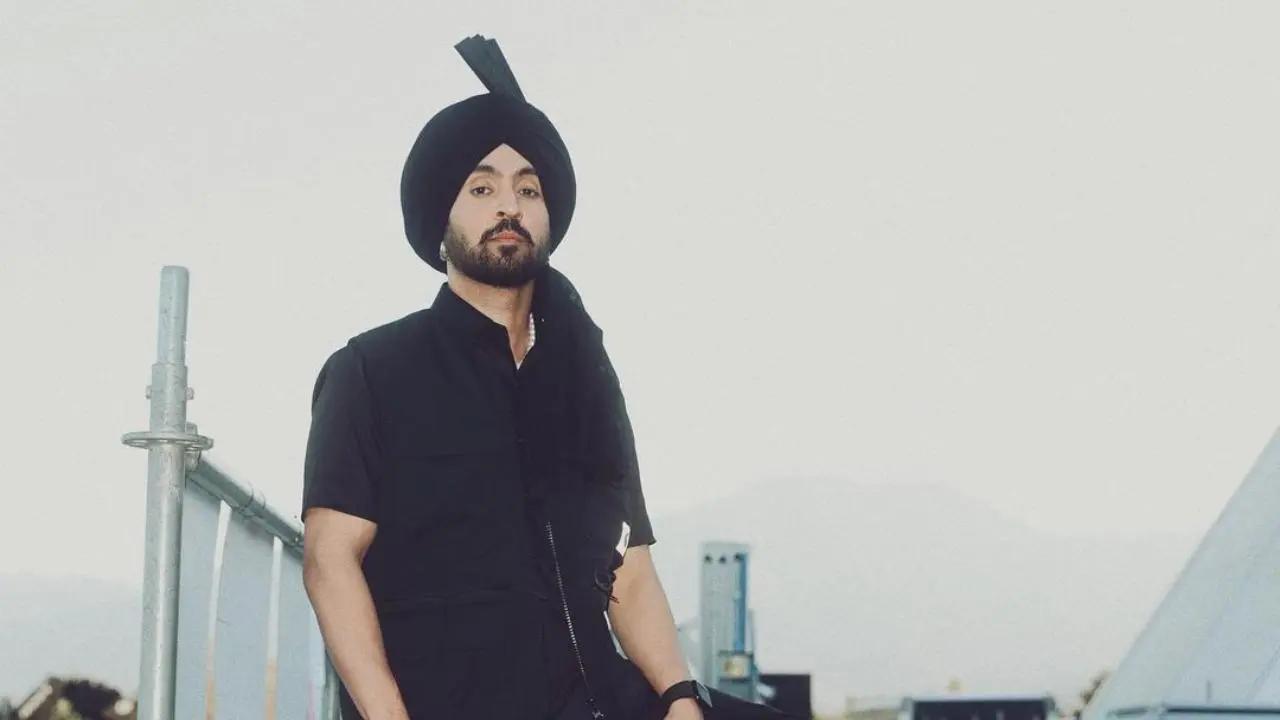
In a dramatic twist that has sent shockwaves through the entertainment industry, renowned Punjabi actor-singer Diljit Dosanjh is now at the center of a storm of allegations. The controversy emerged when Rajat Rocky Batta, a Los Angeles-based choreographer and the owner of RRB Dance Company, took to social media to accuse the “GOAT” singer of not paying dancers who performed during his highly successful Dil-Luminati tour.
Diljit Dosanjh, who has been riding a wave of success with his recent movies “Crew” and “Amar Singh Chamkila,” and a string of high-profile concerts, now faces unprecedented allegations that threaten to tarnish his reputation. RRB Dance Company’s Rajat Rocky Batta broke the news via Instagram, where he posted a strongly worded message criticizing the treatment of Desi dancers in the industry and alleging that Dosanjh’s tour had effectively exploited them.
Batta’s Instagram post struck a chord across the community, as he expressed both pride and disappointment. He affirmed his admiration for Desi artists like Dosanjh who have shattered barriers and achieved immense success in North America but was scathing in his critique of how Desi dancers were treated. “While we as a Desi Dance Community are really proud of a Desi Artist breaking glass ceilings and doing sold-out tours across North America, I still feel deeply disappointed that Desi Dancers are still undervalued as an industry. All of the Desi Dancers in Diljit’s Diluminati Tour were not paid and just expected to perform for free,” Batta’s post read.
The core of his accusation centered on the lack of compensation for dancers who participated in the tour. “Desi Dance as an industry has become a lifeblood for artists and does a significant part in the entire ecosystem of the industry, while its choreography, stage performances, music videos, reels, even promoting songs… It’s an essential part of production and it’s really disappointing to see an artist of this caliber cut corners by stepping on throats of Desi Dancer industry and continuing to attribute to that culture,” Batta added.
He concluded his post with a direct appeal to Dosanjh, urging him to include dancers in the production budget: “Diljit, we are very happy for your success, but your dancers should have been paid and been a part of the production budget.
.”
As these allegations make waves, it’s essential to take a closer look at the recent highlights of Diljit Dosanjh’s career. Diljit, who has taken the Indian music and film industry to new heights on the global stage, is currently engaged in a series of international tours. Most recently, he made headlines during his performance at the Rogers Centre in Downtown Toronto, Ontario, Canada, when Prime Minister Justin Trudeau made a surprise visit.
Diljit shared a video of Trudeau’s arrival on social media, writing, “Diversity is (flag of Canada) strength. Prime Minister @JustinTrudeau came to check out history in the making: we sold out the Rogers Centre!” The video depicted the duo in high spirits, cheerfully exclaiming, “Punjabi aa gaye oye.”
In the film domain, Diljit was last seen in ‘Amar Singh Chamkila,’ a film helmed by Imtiaz Ali. The movie delves into the gripping and untold true story of Punjab’s original rockstar, Amar Singh Chamkila, who ascended from the depths of poverty to peak popularity in the 1980s, only to be tragically assassinated at the age of 27.
This eyebrow-raising controversy over unpaid dancers places a spotlight on broader issues within the entertainment industry, particularly the undervaluation of Desi artists and their contributions. The question remains: will Dosanjh address these allegations, or will this scandal cast a long shadow over his soaring career?
As of now, neither Diljit Dosanjh nor his representatives have provided an official response to Batta’s accusations. The unfolding saga is sure to keep the media and fans on tenterhooks, as they await clarity and justice for the allegedly unpaid dancers.
In an industry where every move is closely scrutinized, this allegation serves as a stark reminder of the inequities that still exist and the voices that refuse to be silenced. Rajat Rocky Batta’s bold stance might just inspire others to come forward, potentially triggering a larger conversation about fair treatment and compensation in the performing arts. For Diljit Dosanjh, the next steps could either mitigate the damage or further entrench the controversy.












